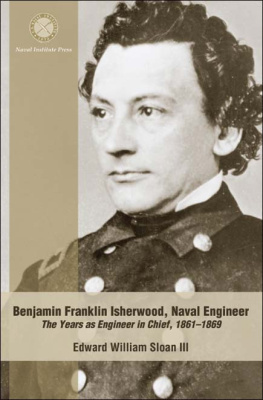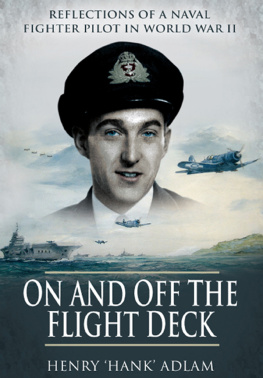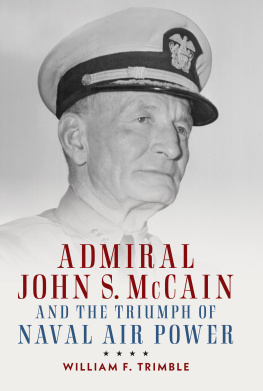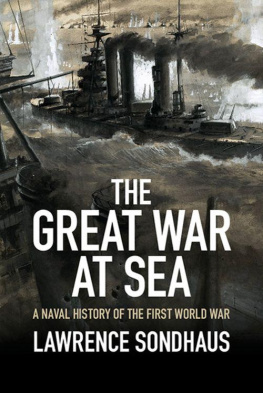ABOUT THE AUTHOR

VICE ADMIRAL WILLIAM P. LAWRENCE excelled in the classroom and on the athletic fields of his native Tennessee, and at the United States Naval Academy. He became an outstanding naval aviator, a test pilot, a squadron commander, and an esteemed leader. He was shot down and captured during the Vietnam War and was credited by fellow POWs for his unwavering bravery and leadership in the prison camp during six years of incarceration. After repatriation, he picked up the pieces of his life and put them together in a way that demonstrated his tireless will to overcome obstacles and to succeed in his beloved U.S. Navy.
Admiral Lawrence rose to flag rank, was Superintendent of the Naval Academy, commanded the Third Fleet, and was on the threshold of achieving four-star rank when illness forced his retirement after thirty-seven years in uniform. In the succeeding years he wrote extensively, held a chair at the Naval Academy, fought the miseries of a stroke and various other maladies, but enduredlargely through the love of his wife, Diane, his own driving will to live, and the support of his intimate friend, fellow midshipman, and supreme patriot, H. Ross Perot. Admiral Lawrence passed away in December 2005.
ROSARIO RAUSA, a retired U.S. Navy captain and naval aviator, is the editor of Wings of Gold magazine, the voice of the Naval Aviation Foundation. He has written or coauthored seven nonfiction books on aviation subjects.

The authors wish to profoundly thank and acknowledge the following people for their invaluable assistance in writing this book: Paul Stillwell, historian, whose oral history of Vice Admiral William Lawrence was of immense value throughout the project and, alphabetically: Frank A. Aukofer; Lieutenant Tiffani E. Bell, United States Navy (USN); Captain Roland Brandquist, USN (Ret.); Daniel B. Bozung; Mr. and Mrs. Erwin T. Buckemaier; Diane L. Clingerman; Captain Raymond P. Donahue, USN (Ret.); Lieutenant Commander Harry Errington, USN (Ret.); Captain Jack Fellowes, USN (Ret.); Captain Barbara Ford, USNR; Guy Hanson; Katherine G. Jakobsen; Laurie M. Lawrence, MD; Captain Wendy B. Lawrence, USN; Captain John P. Leahy, USN (Ret.); Ray Madona; Rear Admiral Kathleen L. Martin, USN (Ret.); William C. Miller, PhD; Fleet Master Chief James R. Mitchell, USN (Ret.); Captain Kathleen D. Morrison, USN (Ret.); H. Ross Perot; Peter V. Rabins, MD; Esther N. Rauch; Frederick W. Rauch; Marguerite C. Rauch; Lieutenant David A. Schwind, USN; Captain E. A. Shuman, III, USN (Ret.); William L. Stine; Colonel David A. Vetter, USMC (Ret.); and Captain Edward C. Wallace, USN (Ret.); Mrs. Lynne T. Waters.
THE NAVAL INSTITUTE PRESS is the book-publishing arm of the U.S. Naval Institute, a private, nonprofit, membership society for sea service professionals and others who share an interest in naval and maritime affairs. Established in 1873 at the U.S. Naval Academy in Annapolis, Maryland, where its offices remain today, the Naval Institute has members worldwide.
Members of the Naval Institute support the education programs of the society and receive the influential monthly magazine Proceedings and discounts on fine nautical prints and on ship and aircraft photos. They also have access to the transcripts of the Institutes Oral History Program and get discounted admission to any of the Institute-sponsored seminars offered around the country. Discounts are also available to the colorful bimonthly magazine Naval History.
The Naval Institutes book-publishing program, begun in 1898 with basic guides to naval practices, has broadened its scope to include books of more general interest. Now the Naval Institute Press publishes about seventy titles each year, ranging from how-to books on boating and navigation to battle histories, biographies, ship and aircraft guides, and novels. Institute members receive significant discounts on the Presss more than eight hundred books in print.
Full-time students are eligible for special half-price membership rates. Life memberships are also available.
For a free catalog describing Naval Institute Press books currently available, and for further information about subscribing to Naval History magazine or about joining the U.S. Naval Institute, please write to:
Member Services
U.S. Naval Institute
291 Wood Road
Annapolis, MD 21402-5034
Telephone: (800) 233-8764
Fax: (410) 571-1703
Web address: www.navalinstitute.org

Young man, you never ask to be removed from a game. The only time you come out of a game is on a stretcher!
I WAS BORN DURING THE DEPRESSION to a stern taskmaster of a father and a compassionate and charming mother. They were loving parents, and I had a magical youth. My father, Robert Lawrence, was gainfully employed, our schoolteachers were tough but fair, I had three great brothers, and we played sports year roundfootball, basketball, and baseball. I was the youngest until Tommy came along thirteen years after me. Bobby was the oldest and Eddie was the next before yours truly. Our mother, Tennessee Brewer, who was known as Tennie, was the embodiment of southern gentility.
Our family even had a car, relatively uncommon at the time. Segregation was fully entrenched long before my birth date, January 13, 1930, but in my youthful innocence I was unaware of any segregation problems.
In those days just about every school in the south posted two pictures on the wallone of Robert E. Lee, the other of George Washington. There was no sign of Abraham Lincoln. It wasnt until I reached my adult years that I realized Lincoln was a great American. He just wasnt discussed in my southern school.
Ive always had an appreciation of history, and I like knowing about my ancestors. They hailed primarily from the British Isles and were various combinations of Scots, Irish, English, and Welsh. My maternal great-great-grandfather served in the Revolutionary War, following which he was awarded land in what was then known as the new territories. He settled in an area now known as Tennessee (which became a state in 1796), was a farmer and a politician, ultimately becoming speaker of the state senate. Sterling Brewer Junior, my great-grandfather, was a Methodist minister and educator. My grandfather, another Sterling Brewer, was a schoolteacher and writer.
On my fathers side, my great-great-grandfather also was a Revolutionary War veteran and received a land grant in the Tennessee region. He was a sheriff and a justice of the peace. His son, my paternal great-grandfather, was a successful traveling salesman of dry goods, did considerable public service work, and settled in Nashville in the early 1900s.
My father, Robert Lawrence, was the first of the Lawrence family to go to college, earning an engineering degree from Vanderbilt University in 1925. He excelled as a lineman on the schools nationally ranked football team and played varsity baseball as well.
In those days the goal posts were situated on the goal line. When Vanderbilt played Michigan, my dad, nicknamed Fatty, placed his feet against the posts for leverage and was instrumental in preventing Michigan from scoring from the one-yard line. Both teams were undefeated that year and tied for what was then the national championship.
For forty-five years, Dad was the director of water and sewage services for the city of Nashville. He was the first to fluoridate public water. We lived in a large home in Nashville, which had a basement apartment for my grandfather, who had been widowed at thirty-six when his wife died in the influenza epidemic of 1918. His father, who was a teenager during the Civil War, passed on fascinating stories about his experiences. In turn, my grandfather captivated me with these tales, particularly those about the federal troops under Ulysses Grant and their devastating occupation of Nashville and other parts of Tennessee during the war.








